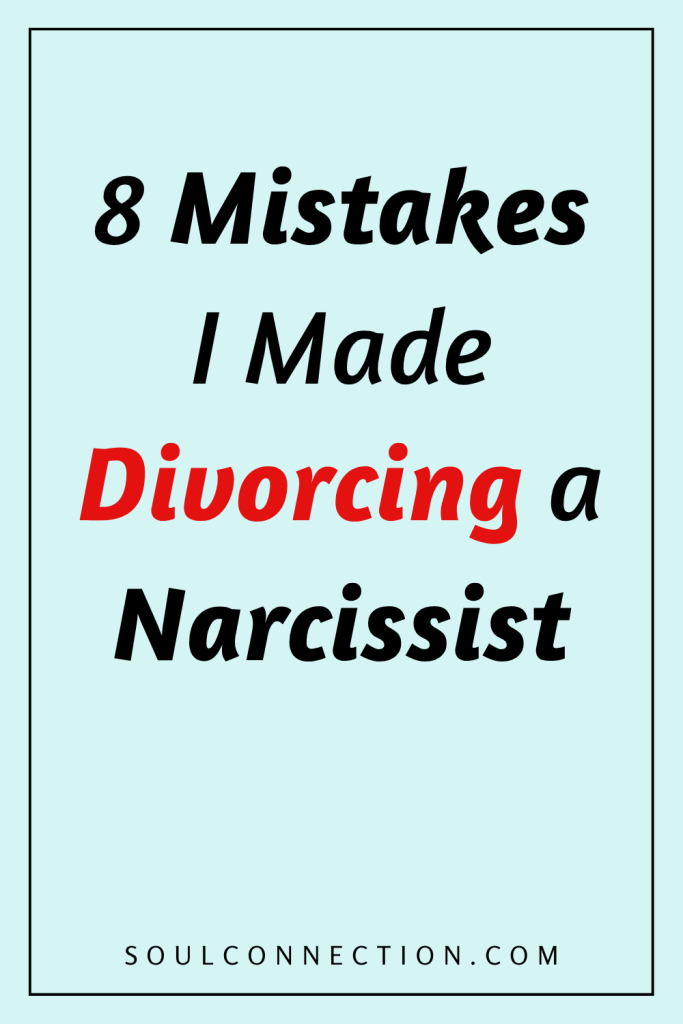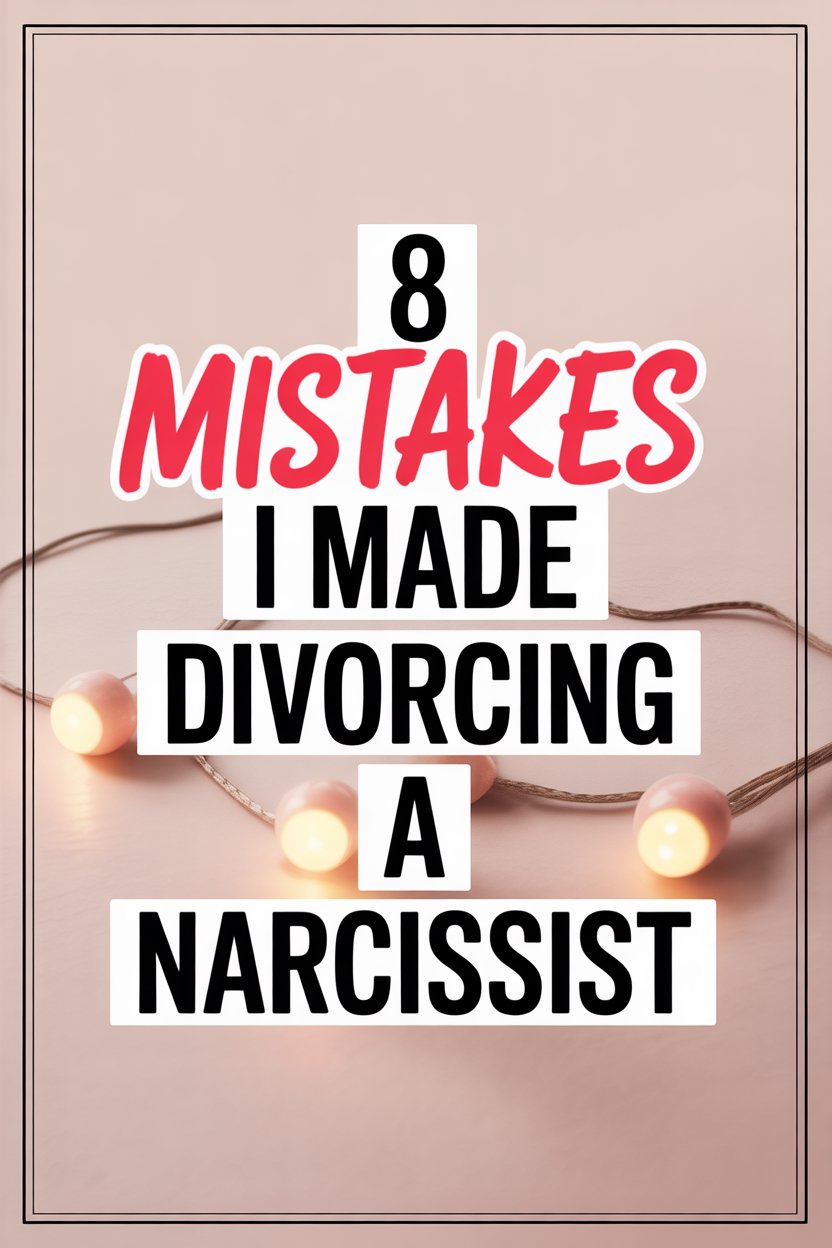Divorcing a narcissist is a bit like trying to nail jelly to a wall—messy, sticky, and likely to leave you wondering how life came to this.
When I finally called time on a marriage that felt more like an audition for survival reality TV, I genuinely thought the hardest bit would be over once the papers were filed. Ha. Did I mention I’m an optimist?
Turns out, I made every rookie mistake in the book—and then some.
So, tuck in and learn from my misadventures. No judgment. Okay, maybe a little.
1. Believing They Could Be Reasonable
Apparently, I was under the impression that common sense and decency would turn up for my divorce proceedings. Spoiler: they were on extended holiday.
When you’re splitting from a narcissist, expecting reason is like expecting your cat to do your taxes.
I assumed we could have “adult conversations” about assets, custody, and maybe even co-exist at school events without one of us mentally plotting the other’s demise. Instead, I got gaslighting with a side of character assassination.
Actionable reality check: Document everything. Every conversation, every email, every smoke signal.
Assume that today’s charming “Let’s just do what’s best for the kids” could morph into tomorrow’s “I never agreed to that!” faster than you can say ‘family court’.
2. Trying to Explain Myself
I wasted more hours than I care to admit trying to “make them understand” my perspective. As if empathy was suddenly going to sparkle forth and we’d share a warm, healing hug over herbal tea.
Narcissists don’t do healing hugs unless there’s an audience.
I wrote long emails. Delivered passionate speeches. Practically drew diagrams. And each attempt to clarify my feelings or explain my choices was either weaponized or dismissed.
Here’s what works better: Keep it short. Keep it factual. Assume every word will be twisted into a balloon animal of blame. And if you’re on the fence about sending “just one more heartfelt message”—step away from the keyboard.
3. Underestimating the Level of Manipulation
Thought I was dealing with some light emotional turbulence. Turns out, I’d signed up for a full-blown hurricane. Narcissists don’t just push boundaries, they rent a steamroller and flatten them.
From sudden bursts of charm (“Why don’t we just settle this over dinner?”) to epic guilt trips (“You’re breaking up the family!”), manipulation comes in flavors you didn’t know existed.
Protective measure: Get a therapist. A good one. Someone who’s got a PhD in ‘Untangling the Twisted’. You’ll need backup, because the gaslighting is Olympic-level.
4. Relying on Verbal Agreements
Some people shake hands and keep their word. Some people see your handshake as an opportunity to steal your watch. Guess which category a narcissist falls into?
I fell for the old “We don’t need to put that in writing, you can trust me” line more than once. Promises made at 11 PM, only to be denied by sunrise. Verbal agreements evaporated faster than my self-esteem after a two-hour mediation.
Solution: If it isn’t written, it didn’t happen. Get everything—yes, EVERYTHING—in writing. If they say, “Don’t you trust me?” offer your sweetest smile and reply, “Not as far as I could throw a grand piano.”
5. Engaging in Pointless Arguments
Ah, the circular argument—prized weapon in the narcissist arsenal. I spent months walking straight into debates I could never win, desperately trying to prove my point.
Spoiler: There is no winning. The goalposts live on wheels.
Engaging with a narcissist over who left the tap running is like arguing with a sat nav that’s set to “confuse and infuriate.” I lost sleep, sanity, and any remaining faith in logic.
What helps: Choose your battles, and let the rest go. Once you realize their logic is just a mirage, you’ll save yourself a stack of headaches.
When you see the argument train pulling up, wave it goodbye and make yourself a cuppa.
6. Not Setting Boundaries Early
I thought boundaries were for people who had time for vision boards and yoga retreats. Turns out, they’re essential survival gear.
Narcissists respect boundaries about as much as toddlers respect nap time. If you don’t set clear limits—about communication, about the kids, about your mother-in-law showing up unannounced—they’ll trample all over your sanity.
Tips for sanity preservation: Decide what you will and won’t tolerate, and put it in writing if possible. Then, stick to it. Yes, they’ll test you. Yes, they’ll try to make you feel guilty.
Smile politely and keep your boundaries anyway. It feels awkward the first dozen times, but it gets easier. Promise.
7. Expecting Support from Mutual Friends
Here’s where it gets especially fun: discovering which of your friends are Switzerland, and which are secret spies for the other side. I made the rookie mistake of confiding in people who, shockingly, relayed everything back to my ex.
Some friends genuinely want peace. Others just want gossip. And some are so adept at fence-sitting they could medal in it.
For your own peace of mind: Be cautious about what you share, and with whom. If your mutual friend’s idea of “neutral” is having brunch with your ex while texting you how much they “hate drama,” take the hint.
Build your own support network—preferably not made up of people who still think your ex is just “misunderstood.”
8. Forgetting Self-Care Wasn’t Optional
When my life was a whirlwind of court dates, document marathons, and emotional landmines, I treated self-care as a luxury. You know, for people with bubble baths and working tear ducts.
Here’s the big surprise: Burning out doesn’t win you extra points in the divorce Olympics. I got sick, became irritable with my kids, and started confusing my lawyer’s hourly rate with my therapist’s.
Non-negotiable advice: Take care of yourself like it’s your second job. Even if it’s five minutes of deep breathing in the car before you walk into mediation. Even if it’s making sure you eat lunch.
No one else is going to do it for you, and no, you don’t deserve to be miserable “for the kids.” They need a functioning parent, not a martyr.
The Only Person Whose Side Matters
Making these mistakes didn’t mean I “failed” at divorcing a narcissist—it meant I was human.
After the dust settled, my biggest lesson was realizing that my happiness wasn’t a negotiation. No court order, no snide text message, no eye-roll from an in-law could take away the fact that I got out.
And, miracle of miracles, my sanity eventually returned from its extended gap year.
If you’re in the thick of it—or even just contemplating the leap—take heart. There is life after divorcing a narcissist. A better one.
Possibly with fewer text messages and more actual jelly, and with friends who don’t moonlight as double agents.
And if all else fails, at least you’ll be able to spot a narcissist at fifty paces. Now that’s a superpower worth having.


